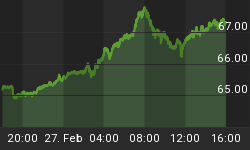The markets appear euphoric about the ability for European policy makers to deliver on new promises. Low market expectations were met. We, too, have a positive takeaway, but only because of one detail of the grand plan; actually, let's call it a "grand sketch," as many details are still unknown.
The Good
Just as the U.S. bailout fund "TARP" was used to bolster U.S. banks as opposed to buying toxic securities in the market, the most effective tool to bolster confidence in the Eurozone is to ensure banks are able to stomach losses on their sovereign debt holdings. The movement to focus on banks in earnest started earlier this month. On October 5, 2011, German chancellor Merkel embraced the notion that bank capital must be bolstered; we turned significantly more positive on the euro that day. Her change of heart came after the market had provided ample "encouragement," in the form of widespread selling of bank shares and debt; the process had been enabled by European stress tests that disclosed sovereign debt holdings in detail.
This is real money that banks will need to raise. The financial system, as a result, will be substantially more robust. Relevant for the euphoria is that there is a focus on bank capitalization. Regulators have started to embrace market value assessments, another huge positive.
Just like many, we would like even higher capital targets. One has to be realistic, though, that bank capital alone will not unfreeze interbank lending markets. Banks with a tier one ratio of 9% must still finance 91 percent of their balance sheet. We must move away from myopic bank regulation coercing banks to favor domestic sovereign debt to a pan-European approach where corporate debt (the interbank lending is lending amongst financial institutions, which are corporations) is valued on its merits rather than regulation.
The Bad
Greece. A debt write-off before a country has been able to achieve a primary surplus (budget deficit before interest payments) is counter-productive, as it takes away a powerful incentive to invest and engage in further reform. Having said that, this is mostly bad for Greece; financial institutions have now been warned that they must have adequate buffers going forward. We avoided a 60% write-off, and may end up with two 50% write-offs. Consider, though, that 18 months ago pundits called for an implosion of the financial system should Greece default. Then, the euro was trading around 1.20 versus the dollar. Now Greece clearly defaults (even if it is possible to avoid the triggering of credit default swaps), but the euro is trading at over 1.40.
The Ugly
The European Financial Stability Facility (EFSF) that's touted to protect one trillion euros is a scheme where even policy makers don't yet know what exactly it is going to look like. It is not a "bazooka," as it cannot refinance itself at the European Central Bank (ECB). Indeed, gearing it up appears to be done through the back door, by making it an insurance scheme. Even so, it only has a fraction of the capital paid-in of what its commitments are going to be. As such, it's a smokescreen, albeit a very powerful one. In a leveraged world, appearances count for a lot. However, it would be far healthier for policy makers to finally realize that de-leveraging is the answer, not to put up ever-greater commitments that -particularly in the case of Greece - may well be called upon.
The good news is that the markets will be vigilant. When the current euphoria is over, the bond market will have little mercy with those ducking from their responsibilities. And that's a good thing that should continue to prove wrong those that have called for the demise of the euro. Long live the euro! Starting November under new leadership at the ECB. Talking about leadership: Has anyone noticed that the Federal Reserve might be paving the way for QE3?















